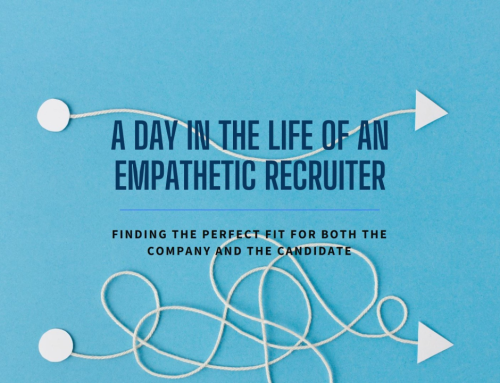By Andres Castillo
In the war for talent, your employer brand is everything. Candidates today are savvy, selective, and vocal. They research before applying, they talk about their experiences on social media, and they’re quick to share frustrations on employer-rating sites. In this environment, a single poor recruiting interaction can cost not just one candidate—but dozens, even hundreds—through negative word of mouth.
And yet, many U.S. companies continue to outsource one of the most brand-critical functions—recruiting—to third-party “sweat shop” agencies based overseas. These agencies, particularly those operating out of India at scale, may promise cost savings and volume. But what they actually deliver is something far more costly: brand deterioration that, if left unchecked, could become permanent.
Communication Breakdown: The Candidate Experience
One of the most glaring problems with offshore recruiters is their inability to communicate effectively with candidates in the U.S. market. Poor grammar, heavy reliance on canned scripts, and a lack of cultural fluency create interactions that feel robotic, confusing, or downright disrespectful.
When candidates can’t understand a recruiter—or worse, when they feel the recruiter can’t understand them—the trust in the employer behind that recruiter collapses. To the candidate, the recruiter is the company. If the interaction is clumsy, the brand looks clumsy. If the recruiter is misleading, the brand looks dishonest.
The Rise of Negative Recruiting
Recent research confirms that negative recruiting tactics are spreading—and damaging brands:
- Ghosting: A 2025 Greenhouse report revealed that more than half of U.S. job seekers were ghosted after an interview. Offshore agencies often disappear once a candidate isn’t an immediate fit, leaving them resentful toward the employer.
- Misleading job details: From inflated salaries to shifting responsibilities, agencies frequently oversell roles just to fill their pipelines. Candidates call this “love bombing,” where flattery and promises give way to disappointment once an offer arrives.
- Slow, inefficient processes: Candidates drop out when hiring stretches on for weeks or months. Agencies juggling dozens of clients at once exacerbate this problem, turning every step into a bottleneck.
- Impersonal automation: CareerPlug’s 2025 data showed widespread discomfort with AI in recruiting. Combined with offshore call-center recruiters reading from scripts, the result is an experience devoid of humanity.
The consequence? Damaged employer brands that repel the very talent companies are desperate to hire. A PwC report highlighted how a poor recruiting experience can permanently harm reputation and shrink talent pipelines.
The Brand Poisoning Effect
What many executives fail to see is the direct line between outsourcing recruiting to sweat shops and long-term brand erosion. Every ghosted candidate, every misleading job ad, every tone-deaf recruiter interaction lives forever on Glassdoor, LinkedIn, Reddit, and TikTok.
Brand equity takes years to build but seconds to lose. And once lost, it’s nearly impossible to regain in a competitive market.
The Leadership Wake-Up Call
Industry leaders must face a hard truth: saving money on recruiting today may cost millions in lost talent tomorrow. If they continue to hand the keys of their employer brand to third-party offshore agencies, they’re not just cutting corners—they’re cutting into the heart of their company’s reputation.
Recruiting isn’t a commodity function. It’s a brand function. And if the function is outsourced to the lowest bidder, the brand will eventually be seen in the same light—cheap, careless, and broken.
The Path Forward
To protect their brands, employers should:
- Bring recruiting closer to home. Use in-house teams or trusted U.S.-based partners who understand cultural context and communication nuances.
- Prioritize candidate experience. Make responsiveness, clarity, and respect core metrics—not just time-to-fill.
- Audit recruiting partners. If using third parties, companies must actively monitor how those recruiters represent them.
- Invest in training. Recruiters should be brand ambassadors, not transaction processors.
Conclusion
Employer brand is no longer a soft asset—it’s a business critical one. And it’s being poisoned daily by third-party recruiting sweat shops that don’t, and can’t, represent U.S. companies with the respect candidates deserve.
If industry leaders don’t course-correct soon, they risk reputational damage that no marketing campaign or rebrand can ever undo.







Leave A Comment